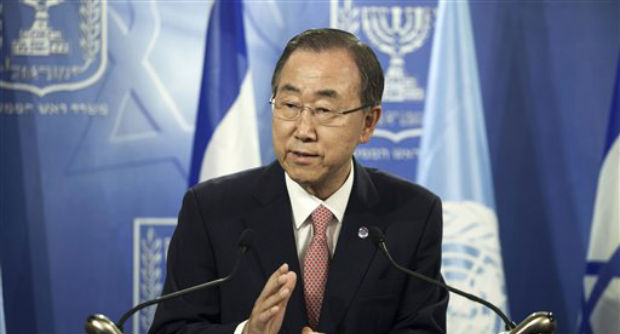HIROSHIMA, Japan— The world will remain unsafe until governments end the threat of nuclear arms proliferation, United Nations Secretary General Ban Ki Moon said Wednesday at the start of the 25th UN Conference on Disarmament Issues.
Ban opened the first session of the three-day conference with a brief but poignant video message that also gave tribute to the hibakusha or the survivors of the atomic bombing on Aug. 6, 1946.
“We remember the terrible suffering of the survivors as well as your passionate call for action. I join the hibakusha and others demanding a nuclear weapons free world,” Ban said.
He pointed out that this year also marks the 70th founding anniversary of the UN, which was established by countries to prevent another outbreak of war.
“It is a time to return to our founding mission to prevent war and to renew our pledge for world peace. Our world will not be safe until we end the nuclear threat,” Ban said, adding:
“Some say it is impossible. I say no. Setbacks and stalemates are not a cause to give up. They are the reason to try harder.”
Atomic bombs were dropped in the cities of Hiroshima and Nagasaki to end World War II, the first and only nuclear attack on human beings.
While the bomb itself exploded some 600 meters above the ground, the heat generated by the explosion on the ground reached as much as 4,000 degrees Celsius, killing 72,000 people in Hiroshima instantly, with
not a few melting on the spot.
Since the A-bombing, there has been a worldwide campaign to end nuclear testings and the proliferation of nuclear weapons. However, it has been a tough fight for advocates.
On Wednesday, former US Secretary of Defense William Perry said that “most citizens do not understand how devastating a nuclear war is.”
Perry, now the director of the Preventive Defense Project, said there is a “false sense of complacency” in the world on the nuclear threat. “But there is no basis for such complacency,” he said. Nikko Dizon, Philippine Daily Inquirer
RELATED STORIES
UN chief urges NKorea not to conduct nuclear test
PH’s role in nuclear disarmament movement
